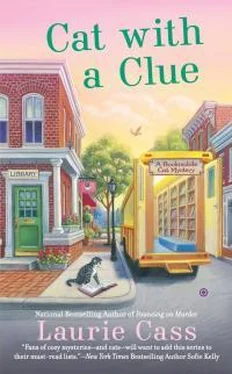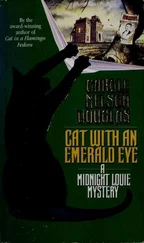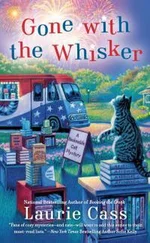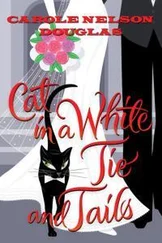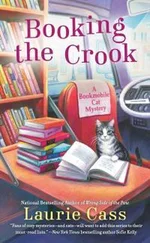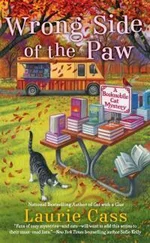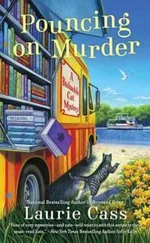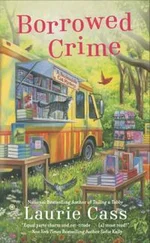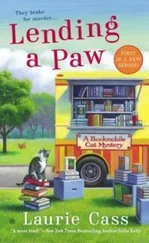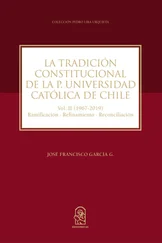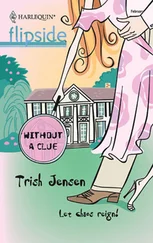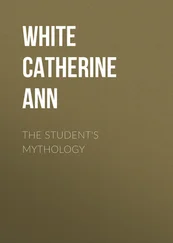“You’ve heard what happened at the Petoskey library?” I asked.
The detective frowned. “I have not.” I started to tell him what little I knew, but he put up his hand to stop my flow of words, pulled his cell phone from his inside suit pocket, and pushed some buttons. “Morning, Scott,” he said. “What’s with your library?”
As he listened to Scott, whoever he was, Inwood’s gaze came my way but focused on something behind my head. The wall, maybe, or—I mentally summoned a map of the area—maybe he was seeing far past me, all the way to the library in Petoskey. It was a fairly new building, and I ached for the library director and staff and the hundreds of people who used it regularly. A fire had to be about the worst thing that could happen to a library. Even if the books hadn’t actually burned, there’d be smoke damage or water damage from the sprinklers or firefighters.
I cringed to think of what it would take to bring a library back from a large fire, and started thinking about what we could do to help. First, I’d find out what books they needed most; maybe we had extras, or could at least lend them some of ours. Then, if they needed hands to help clean, I’d make phone calls to the libraries all over northern lower Michigan. For something like this, people would turn out to help in a heartbeat. Then, if they needed—
“The fire,” Detective Inwood said, putting his phone away, “was limited to a meeting room. An exterior window to the room was broken, and an incendiary device of some sort was thrown inside. The smoke detectors went off at two a.m., and a night custodian entered the room. He used a nearby extinguisher to put out the fire, but inhaled enough smoke that he was taken to the hospital by ambulance. He was treated and released.”
Inwood picked up his coffee mug. “The meeting room suffered damage to the furniture, walls, carpet, and ceiling, but there was no damage to any other portion of the building. Or its contents.”
I slid forward on my chair. While I was beyond pleased that the library was essentially fine, that wasn’t why I was here. “It was a diversion,” I said. “Someone who didn’t want to be seen needed uninterrupted time to look at their books.”
The detective’s eyebrows went up, but he didn’t reply until after he’d upended the mug and drank down the last of its contents. “How so?” he asked.
So I told him. I told him about the kindness of a long-ago DeKeyser to an artist wanting to paint flowers. I told him how the artist had sent a copy of the completed book to the DeKeysers. I told him where Cade had seen the book. And, finally, I told him the current value of Chastain’s Wildflowers .
Then I sat back and waited.
Which wasn’t much of a wait, because he immediately said, “The X-Acto knife. That’s why it was in the library. Wildflowers may be worth a lot of money intact, but if you cut it apart and sell it page by page, you probably wouldn’t have to prove your ownership, and it’s possible you’d end up with a lot more money.”
I nodded.
“But why would anyone go to the trouble of doing that?” he asked. “Why wouldn’t she or the killer simply steal the book?”
I’d thought about that. “They probably assumed the security at the library is a lot tighter than it really is. Most downstate libraries have a chip embedded in the book that sounds an alarm if it’s not deactivated at checkout. And she probably figured we have security cameras that get reviewed for theft. Seeing someone walk out with a book in the middle of the night would be a huge red flag. Just seeing someone walking?” I shrugged. “If the cameras existed and we noticed it, we’d probably wonder, but if there wasn’t anything missing, I doubt we’d do anything.”
“Well.” Inwood started to lift his mug, realized it was empty, and stood. “Now, that’s worth brewing a new pot of coffee for.”
He smiled at me, but I couldn’t manage to return it.
Because I couldn’t stop thinking that, somewhere out there, a killer was on the loose. And if he’d killed once in search of this book, would he hesitate to kill again?
* * *
Ten minutes later, my knees were underneath the large dining table at my aunt’s boardinghouse, and I was enjoying the ebb and flow of conversation while eating a breakfast frittata made by the cooking team of Liz and Morris. I’d deciphered enough healthy ingredients in the dish—asparagus, tomato, and broccoli—to count it as my recommended daily allowance of vegetables. Plus, there were fresh strawberries and cubes of melon that looked good enough to be served in Kristen’s restaurant. Breakfast didn’t get much more nutritious, and I felt virtuous about my adultlike meal.
On a Saturday morning like this, the talk inevitably centered around what everyone was going to do with such outstanding weather. The forecast was for sun, light winds, and a high of seventy-seven degrees, a Chamber of Commerce kind of day.
Eva and Forrest, the fortysomething mountain bikers, were planning to ride the Little Traverse Wheelway between Charlevoix and Petoskey. Liz and Morris, once the kitchen was cleaned up, were headed east, over to Lake Huron, to explore the beaches near Alpena. Victoria and Welles, the couple in their sixties, had announced their intention to tour the Music House Museum, just north of Traverse City.
Aunt Frances, who hadn’t eaten much but had spent most of the meal looking out the windows to the screened porch and beyond to the trees of the backyard, blinked at the mention of the Music House. “If you’re going there,” she said, “you should stop at Guntzviller’s.”
“What’s Guntzviller’s?” Victoria asked.
I grinned. I’d stopped there once and had been entranced by the blend of retail, taxidermy, and museum featuring wildlife and Native American artifacts. “Don’t be scared by the howling,” I said, then wouldn’t say any more.
Welles, the retired dentist, who with his fit frame and white blond hair, didn’t look nearly old enough to be retired, glanced at my aunt. “What are your plans for the day, Frances?”
She started at the question. “Me? I’m afraid I have chores to do.”
“How annoying,” Eva said, grimacing. “I hope they’re outside ones, at least.”
Aunt Frances smiled, but it didn’t last long. “I’d best get going.” She rose, but when she started stacking her dishes, Liz put out a hand to stop her. “Forrest and I will take care of this. It’s our day, right?”
Typically, everyone cleared their own place, but this time my aunt simply nodded at the violation of her own rules. The seven of us sat and listened to her footsteps cross the living room, climb the stairs, and enter her room. When there was a light thud , indicating that her bedroom door had shut, the six boarders all turned to face me.
“What’s wrong with your aunt?” Victoria demanded.
I blinked. “Umm . . .”
“We’re getting concerned,” Morris said. I’d almost grown accustomed to hearing a well-known voice at my aunt’s dining table, but there were times when I had to force myself to stop looking around for the radio.
“Um . . .” I said again, not sure where this was going.
“The scrapbook,” Welles said.
And then everything became as clear as the summer day outside.
The first year my aunt took in boarders, she’d purchased a scrapbook and invited everyone to fill it up. It was the perfect activity for a rainy day, and past guests had created pages of drawings, notes, postcards, ticket stubs, restaurant napkins, and cardboard coasters. Most of the pages had handwritten comments about the fun times, the weather, the lakes, the food, even the late-night card games and board games that often took place on the screened porch.
Читать дальше
